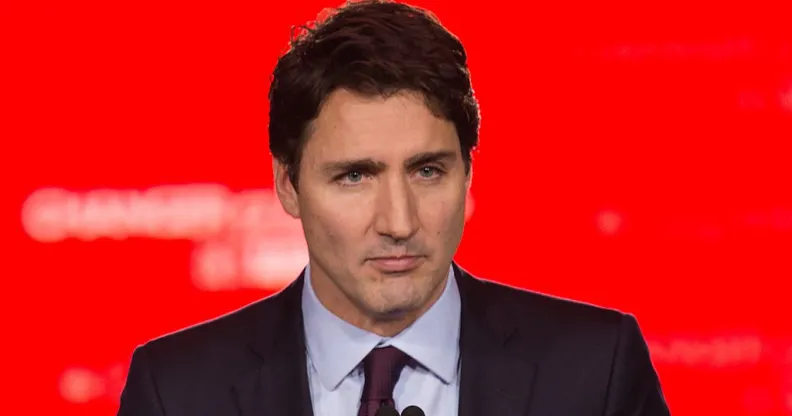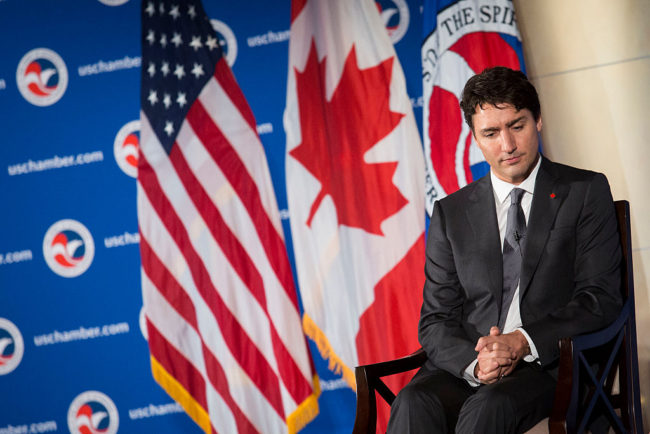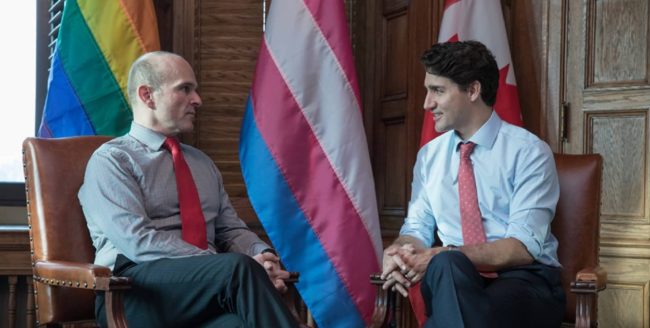Canada to apologise to thousands for ‘LGBT purge’ of military

Prime Minister Justin Trudeau officially apologised for the Canada “LGBT purge.” (Getty)
Canada’s government has said it will apologise to thousands of citizens affected by an ‘LGBT purge’ of the military and public service.
It is also considering whether or not to issue formal pardons or compensation to the thousands of Canadians who lost their jobs over three decades.
The programme to root out gay and lesbian people was carried out until the late 80s, because it was a thought they posed a threat to national security.

Authorities used a creation called the Fruit Machine to supposedly identify homosexual people.
The discredited device, developed by a university in Ottawa, showed public servants and military personnel sexually explicit pictures and measured how they reacted.
A formal apology is expected to be issued in the early autumn, according to the Guardian.
Randy Boissonnault, Prime Minister Justin Trudeau’s special adviser on LGBT issues, is leading public consultations with a view to ensuring the apology is comprehensive and satisfying.
He said: “We are committed to apologise in an inclusive and meaningful manner before the end of 2017.”
A spokesperson for Boissonnault added: “We want to make sure we do it right and that it is all-encompassing and that we don’t forget people.
“That’s the reason that the consultations are ongoing at this point.”
LGBT activists have long called for the Canadian government to apologise for the cull.
This year they have been able to point to Germany quashing thousands of historic homosexuality convictions and setting aside 30 million euros for compensation.
And in January, Britain pardoned thousands of men convicted of historic gay sex offences under Turing’s Law.
Last week, the Australian state of Queensland introduced a law to throw out criminal convictions for homosexuality and apologised for causing its citizens “immeasurable pain”.
In March, frustrated with their government dragging its feet, activists launched a class action lawsuit which sought at least 600 million Canadian dollars for what lawyers termed an LGBT purge.

The lawsuit – signed by hundreds so far – is ongoing, and will not be affected by any formal government apology, said Douglas Elliott, a Toronto lawyer and gay rights activist leading the case.
“It was a brutal, senseless, wasteful, harsh and cruel campaign for which the government should abjectly apologise,” he said.
He welcomed the fact that progress was being made on an apology, saying that Canada was “really starting to fall behind on this issue.
“I really am mystified as to why it’s taking so long … I think it’s been very well-intentioned, but there’s been a lot of overpromising and under-delivery so far.”
Nevertheless, he said he would “rather have a good apology that has taken a few months than a rotten apology that’s given quickly, because we’re only going to get it once.”
Boissonnault, who was the first out gay MP to be elected in Alberta, last week prompted the Canadian High Commission in London to install a gender-neutral toilet.

